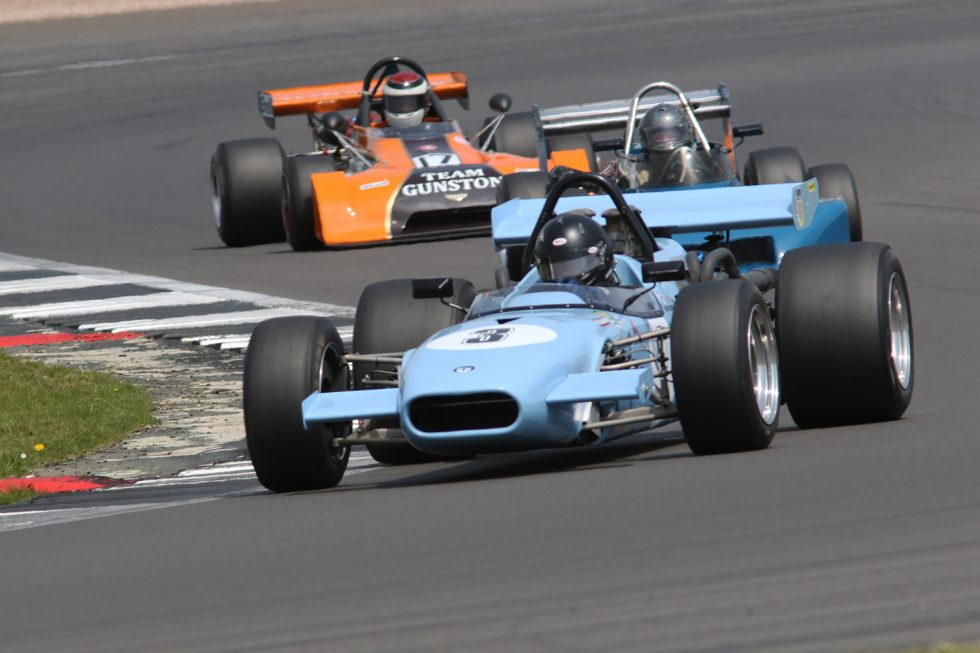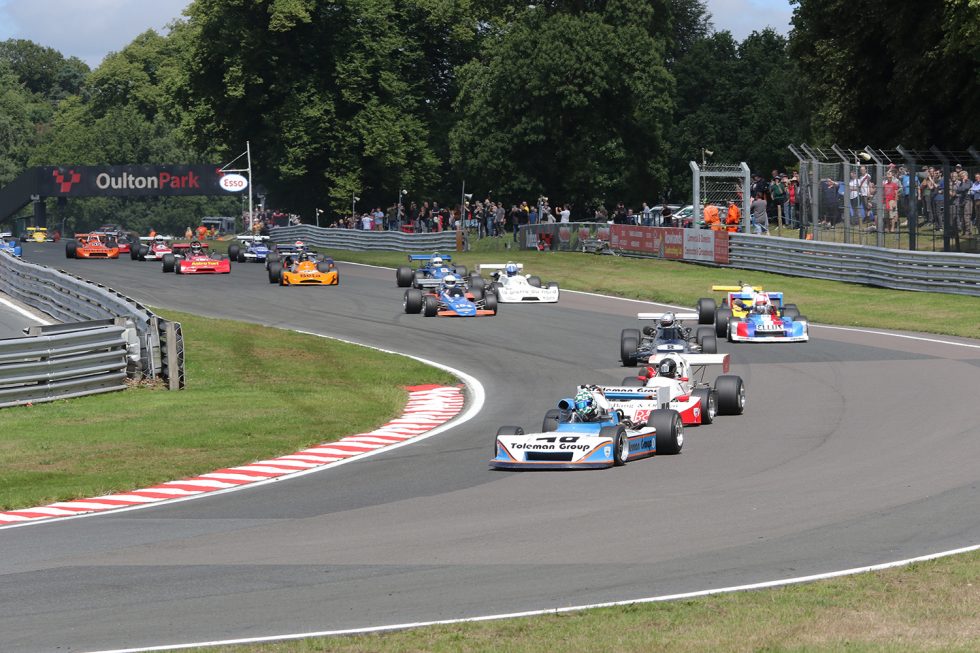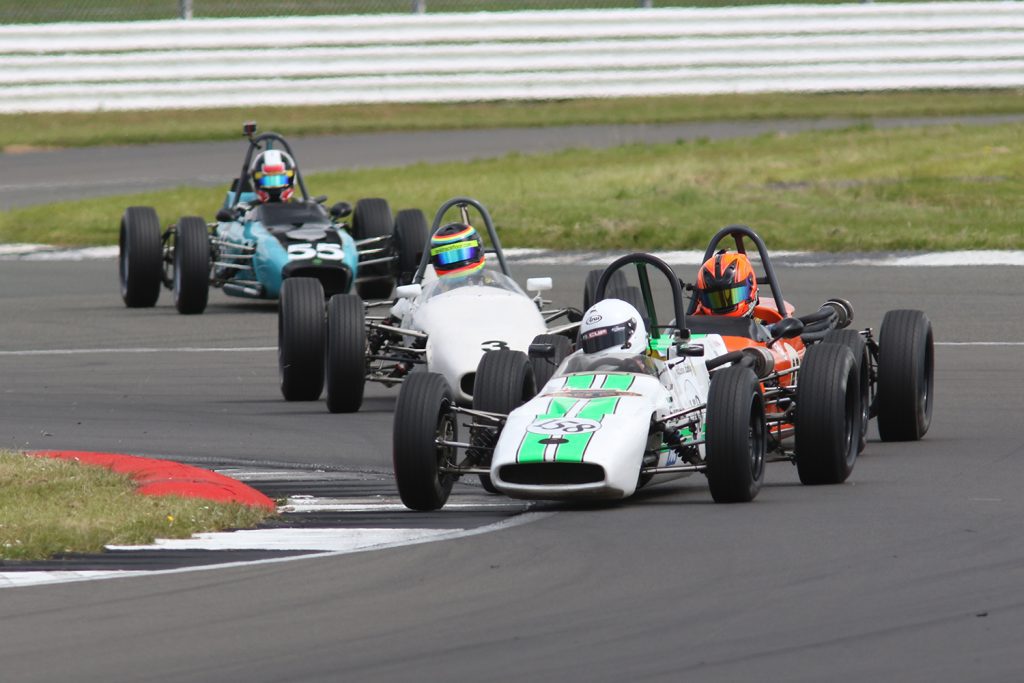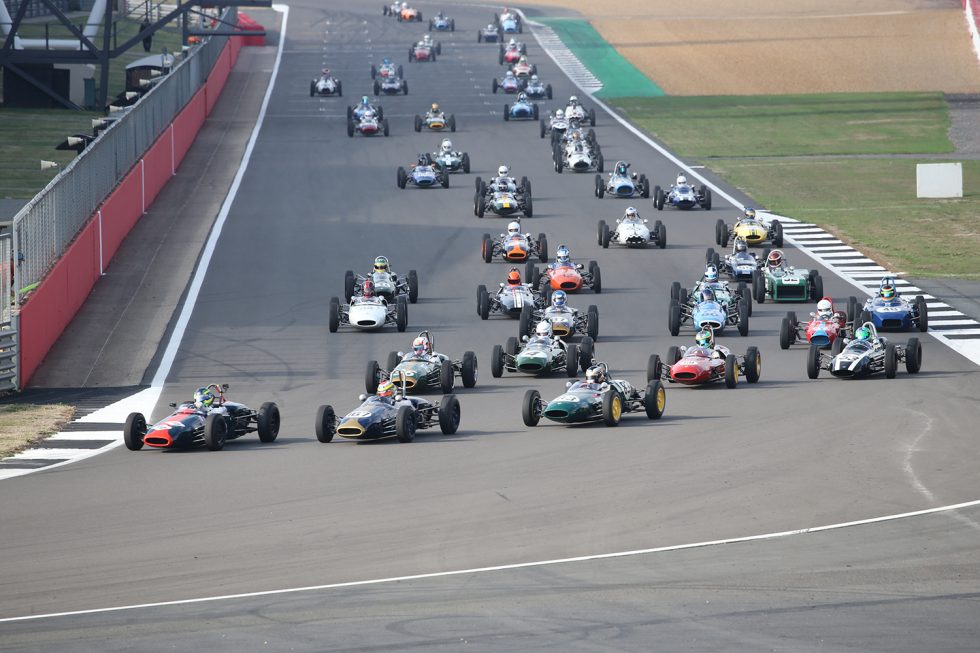Just like modern motorsport has to tread a tricky path with many questions surrounding what the future might look like, so does ‘back to the future’ historic racing.
Alternative fuels, attracting younger volunteers and competitors, keeping those people safe and providing value for money for investors are all shared future challenges.
But historics doesn’t have the benefit of moving with the times in terms of car production, so safety, alternative propulsion and attracting younger people are all tougher in historics even more so than in period motorsport.
Events like the Goodwood Revival and the Le Mans Classic are just the tip of the iceberg of a strong, global historic racing community that has come to put on some of the best events in the racing calendar in some of the most spectacular machines from every era. The Revival attracts some of racing’s biggest stars like Jimmie Johnson and Scott Dixon last year.
Podium Life got in touch with a club founded in 1966, the Silverstone-based Historic Sports Car Club (HSCC), to learn more about historic racing and how it’s led by one of its most prestigious organisations.
Andy Dee-Crowne – a former racer, clerk of the course and now the HSCC’s Chief Executive – gives us his thoughts on leadership in this special Q&A.
Who are some of your mentors?
Fergus Whatling, Bernie Cottrell, Julian Floyd and Frank Lyons. If there’s one person that I would mention above all others it would be Fergus Whatling.
Fergus has been the HSCC club steward for more years than I care to remember. But he also stewards for the Revival etc. He’s probably one of the most experienced stewards out there at this current time.
I think that his insight into motor racing in general is second to none. He’s influenced me in many, many ways, in terms of judicial is the way to deal with things, incidents on circuit and just generally he’s been a mentor throughout my time as a driver because I knew him when I was a driver.
Then through my career as I’ve gone out of the driving into the clarking, and then finally into running the HSCC, he’s always been there.
The biggest lesson you’ve learned in motorsport?
Safety is key, continually assess, reassess and adapt to ensure the safety of drivers, officials and members of the public.
Best piece of advice you’ve received?
As a clerk, neutralise the danger first, then consider your options.

Which is more enjoyable, racing or clerking?
I think that if you are indulgent and you indulge your passion, which is motorsport, and you can race, of course, you derive an awful lot of pleasure from that.
But as you get older and we start moving on, I decided to try and do something by putting more into motorsport. I’d had kind of a good career in motorsport.
Putting more in was clerking for me, because I understood how you work out on a circuit. A lot of clerks have never driven a race car.
Having driven a race car for many, many years and then got into clerking 15 or so years ago, I had a bit of a better perspective on things. Clerking can be equally as enjoyable as racing because it’s about safety.
If you understand the issues then you can make it more safe, I believe, so there you are. So it’s a difficult question to answer, I think, equal measures to be honest with you. I think there’s just a different outlook and a different view but within the same sport.

How would you describe your leadership style?
I would like to think inclusive, but when required, decisive.
Do you think having raced yourself gives you that ability to be more decisive as a clerk because you have the perspective of both?
Yes, no shadow of a doubt about it. There are others, there are my contemporaries around, Peter Daly [British Racing and Sports Car Club chairman], there’s a whole raft of people that you would say are racers and also chief executives or chairs of large, large clubs. Those individuals have more insight and therefore can be more decisive.
You have to be decisive as a clerk. You cannot sit in a race controller scenario, and not be decisive. If you can’t make a decision, then you’re not in the right place.
Those decisions are a matter of life and death, literally. It’s quite often overlooked, how incredibly structured the sport is, but those decisions that are clerk-based, whether to red flag, yellow flag, safety car, whatever, how you neutralise, but if you can’t make a decisive decision at an appropriate time, then you have no right being in race control in my view.
So inclusive, I can be inclusive when I’m not in in that kind of environment. But once I put on the badge, and I get into race control, and I’m in charge of that race meeting or that particular race, then I have to be decisive and you have to have the self confidence and knowledge to be able to deal with it appropriately.

What book/article/film/podcast has impacted you?
Two really, Grand Prix and Le Mans. Le Mans, Steve McQueen, that had to be I suppose the reason I got in motor racing, first into karting.
So I think Le Mans was the pivotal film for me, and I always had an aspiration to drive at Le Mans. And yeah, managed to do that in the Classic. I suppose that was the incentive to get involved.
For many people Le Mans was at the time, was a flop. It was considered to be a self-indulgent movie made by the McQueen to indulge his own personal passion and there was not a great storyline.
But now, of course, as we start looking back, like anything, we look at it in a different perspective. We look at it when there weren’t any chicanes on the Mulsanne and the [Porsche] 917s were doing 230-odd mph down the Mulsanne.
Derek Bell is our [HSCC] patron, and he was out there doing it at the time. Fantastic provenance and history. At the time, for me, it was really spellbinding. I think I must have seen it about three or four times when it first came out, and countless number of times since.
You can go to dinner with three people, living or dead, who are they and why?
Graham Hill, I admired his courage, determination and self-belief delivered with a playful and mischievous personality.
Barry Sheene is another fascinating character who’s antics off circuit and skill on circuit would have made for a very enjoyable but I suspect a rather boozy lunch!
Toto Wolff. For me he best represents the professional, considered approach to motor racing that I aspire to.
What are some of the biggest challenges of leading an organisation dedicated to classic/historic cars in a modern era and how do you cope with those?
There are many. Rising costs of track hire and associated costs of organising events are a significant factor with these costs having to be passed on to the competitor.
The future of fossil fuels and the use of bio-fuel alternatives in historic cars. The ageing driver population, safety and driving standards.
Modern motorsport moves with the car industry so manufacturers invest in things like hybrid tech. Obviously as a historic club, you can’t just put hybrid motors in all of your cars, so this challenge must be even bigger for historics!
Sustainability I think is clearly at the forefront of all of our minds or should be. But you’re right, you’re not going to slap an electric motor into a D-Type Jaguar. You could, I have seen them – not a D-Type but similar – but I don’t think that’s the way forward.
I think that alternative fuels are going to be that important in motor racing and society in general, but in motor racing in particular it will enable our cars to be run on into the future with using just a different fuel which is greener and more sustainable and all of the other things that we need to do. But it will still have that spectacle that we see today.
What does the future of racing look like to you?
I think generally very good, but we need to encourage people to invest in our sport.
As a generalisation if you look at drivers of historic cars now, they fit into a couple or three categories. But very few are young drivers.
You’ll get the owner-driver, who will then employ the young gun perhaps at Goodwood to drive that car and as I said, the owner-drivers themselves depending on the age group.
When they decide to finish racing, do they then decide and say, I’m going to sell my asset? Or I’m going to give it to my son or daughter and let them continue to race? Or does it sit in the garage and are they polished and are they looked after and they go into a collection which is all very admirable?

It’s fantastic because we keep those cars alive.
But actually where they need to be is on a race circuit. So if you’re not actually getting a change of ownership, you really need to stimulate that market to get people driving these old cars.
It’s a big following in historic cars.
We’ve got Historic Formula Ford, that very much has been overtaken by young drivers from 18 upwards, but not so much in the large groups.
Having said that, if you look at the Le Mans Classic I’m sure you’d see a lot of middle aged and perhaps younger, professional drivers who are out there, but not necessarily so much in club racing.

